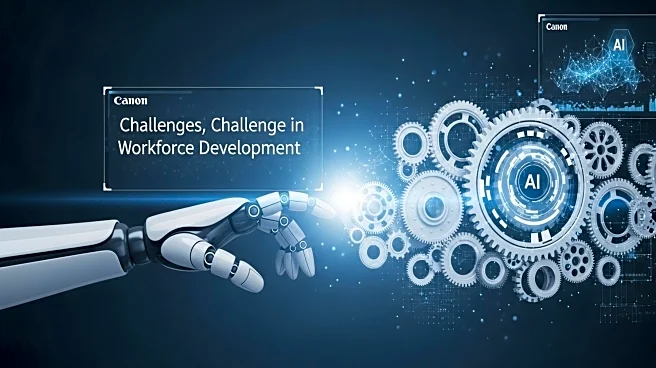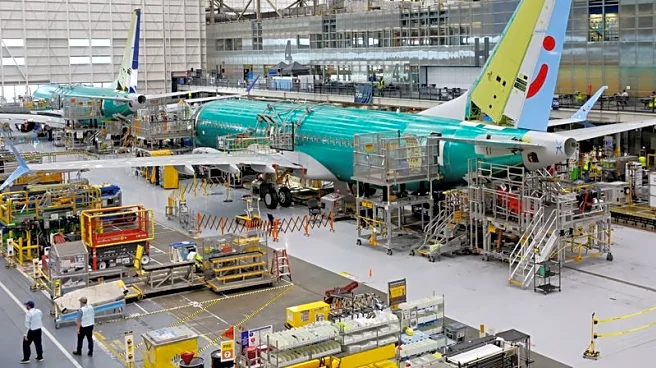What's Happening?
A hearing conducted by Pennsylvania's Senate Majority Policy Committee, led by state Sen. Gene Yaw and state Sen. Dave Argall, focused on strengthening the relationship between education and workforce development. The event, held at Lycoming College, brought together educators, students, and business representatives to discuss strategies for preparing students for a rapidly changing job market influenced by Artificial Intelligence (AI). Dr. Charles W. Edmonds, president of Lycoming College, emphasized the need for educational systems to adapt to complex learning objectives and support economic goals. Dr. Michael J. Reed, president of Penn College, highlighted the importance of hands-on learning and industry partnerships to equip students with necessary skills. The hearing addressed Pennsylvania's workforce shortage due to population decline and aging workers, stressing the importance of retaining educated individuals within the state.
Why It's Important?
The hearing underscores the critical need for educational institutions to evolve in response to technological advancements like AI, which could render certain careers obsolete. By focusing on soft skills and hands-on learning, colleges aim to prepare students for future job markets that require adaptability and innovation. The discussion is vital for Pennsylvania, facing a workforce shortage, as it seeks to attract and retain talent to support economic growth. The collaboration between educational institutions and industry leaders is essential to ensure that graduates possess the skills needed for emerging sectors, thereby strengthening the state's economic resilience.
What's Next?
The hearing suggests potential steps for Pennsylvania to address workforce challenges, including enhancing partnerships between colleges and industries, and promoting initiatives like the Grow PA scholarships to attract and retain students. The focus on developing energy infrastructure and supporting sectors like manufacturing and technology indicates a strategic direction for future workforce development. Continued dialogue between educators, policymakers, and industry leaders will be crucial in implementing effective solutions to meet the evolving demands of the job market.
Beyond the Headlines
The emphasis on AI and its impact on future job markets highlights broader ethical and cultural considerations regarding automation and employment. As educational institutions adapt to these changes, there is a need to balance technological integration with human-centric skills that foster creativity and critical thinking. The partnership between colleges and industries also reflects a shift towards more practical, experience-based learning, which could redefine traditional educational models.










